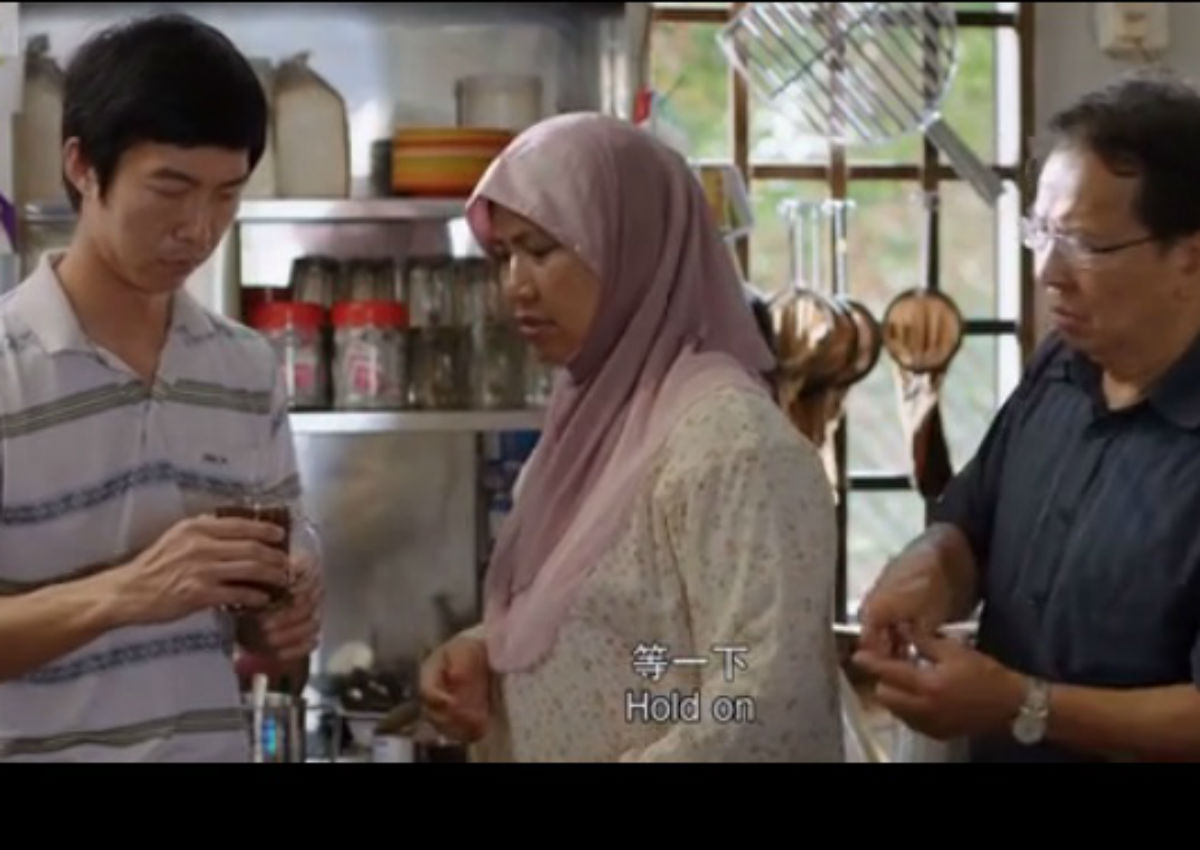It is a common scene at many kopitiams (coffee shops in Hokkien) – a food runner takes the order of a local customer but remembers colloquial terms wrongly, and ends up mixing up simple orders like ‘kopi-O’ with ‘kopi-C’.
Frustrated at the foreigner’s blunder, which has happened more than once, the manager of the drink stall raises his voice and reprimands the runner for not getting the hang of the job despite having been there for several months.
Does a story like that ring any bells for you?
A short film by local director Lincoln Chia titled ‘Reunion’ tells this story from a different perspective.
It is a typical day at protagonist Towkay Tan’s kopitiam, and the Chinese foreign worker he hired at the stall has just delivered a cup of kopi to a customer. Just as the worker, Ah Biao, gets a call from his wife and child back home, he is forced to cut the conversation short when his boss finds out he has messed up an order.
Seeing that Chinese New Year is just around the corner, a ‘mak cik’ (‘auntie’ in Malay) from another stall tells Towkay Tan not to be angry. She then reminds him of the festivities drawing near, and suggests that he include Ah Biao for reunion dinner with the other people who work at the kopitiam.
Later, everyone leaves the kopitiam(presumably for their reunion dinner with Towkay Tan), as Ah Biao stays back to tend the store.
But just when you least expect it, the kopitiam crew returns with a feast so they can have reunion dinner with Ah Biao, who is thousands of miles away from his family and friends.
The clip, uploaded on video platform Vidsee, may be short, but its message is loud and clear. In our busy metropolitan lives, have we stopped enough to think of the foreign workers who live among us? Has it ever occurred to us, that they too are fathers and mothers, brothers and sisters, sons and daughters to someone too?
It is no secret that foreigners play an important role in Singapore’s economy, but full acceptance of these 559,000 domestic and construction workers remains to be seen.
Just last month, an article in The New Paper highlighted the struggles faced by some of these workers in terms of being accepted as a part of society.
One worker the paper spoke to said he has been shunned on public transport, but instead of feeling angry, he felt bad about causing such reactions with his presence.
Another construction worker interviewed by the paper said it was difficult to make friends with Singaporeans as his social standing is often defined by his job and nothing else. He reveals that he has a passion for poetry, but is saddened to hear quick dismissals of his dreams to become a poet.
An official website for Reunion called #WhyBeTowkayTan explains that the film, which was made by production firm Sproud and supported by National Integration Council, was created to share “other perspectives that we too often miss without interacting with others”.
It also encourages Singaporeans to take a step back and see the rich stories belonging to the people we are unfamiliar with.
ljessica@sph.com.sg




















